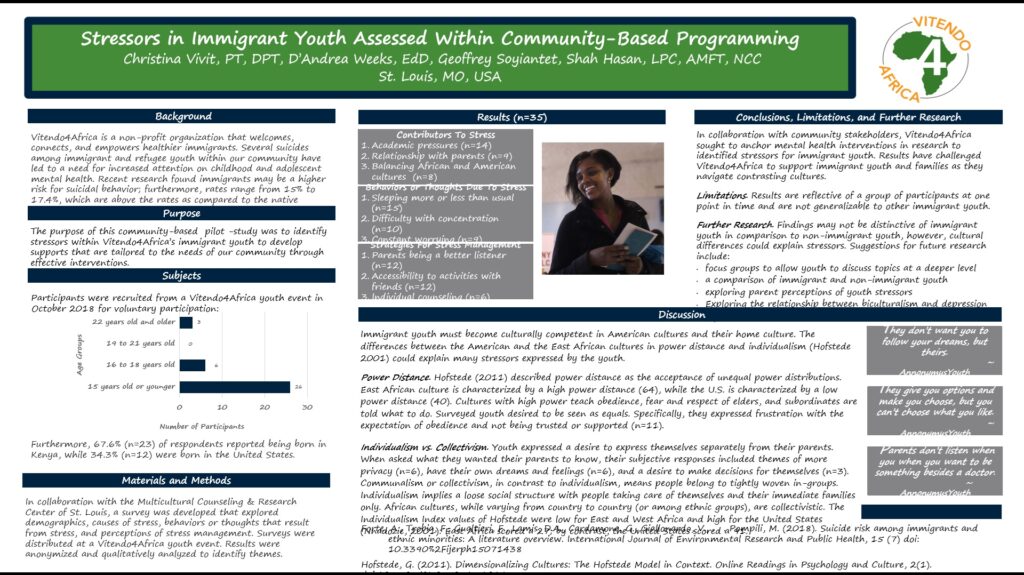Recent suicides among immigrant and refugee youth have highlighted an urgent need for increased attention to mental health in these communities. Research indicates that immigrant youth may be at higher risk for suicidal behavior, with reported rates between 15% and 17.4%—significantly higher than those in native populations (Forte et al., 2018). Vitendo4Africa (V4A), a Missouri-based nonprofit dedicated to welcoming, connecting, and empowering healthier immigrant communities, conducted a community-based assessment in partnership with the Multicultural Counseling & Research Center of St. Louis to better understand the sources and effects of stress on immigrant youth.
A survey was administered during a Vitendo4Africa youth event to gather insights on demographics, perceived stressors, behavioral responses to stress, and preferred strategies for stress management. Among the 35 anonymous respondents, 74.3% were aged 15 or younger, 67.6% were born in Kenya, and 57.1% had lived in the United States for over five years. The most commonly reported stressors included academic pressure (n=14), strained parent-child relationships (n=9), challenges balancing cultural identity with American norms (n=8), and mental health struggles (n=7).
Self-reported impacts of stress included changes in sleep patterns (n=15), difficulty concentrating (n=10), and persistent worry (n=9). When asked about the most helpful support strategies, youth identified improved parental communication and listening (n=12), increased access to social activities with peers (n=12), and individual counseling (n=6) as most beneficial.
These findings underscore the need for culturally responsive mental health interventions that address both individual and family-level dynamics. Vitendo4Africa is using these insights to guide program development and partnerships with community stakeholders to build research-driven, real-world supports that reduce the risk of suicide and promote emotional well-being among immigrant youth. Further research with larger and more diverse samples is recommended to validate these findings and strengthen intervention strategies.
Authors
- Vitendo4Africa
W D’Andrea Weeks - Vitendo4Africa
S Geoffrey Soyiantet - Vitendo4Africa
H Shah Hasan - School of Medicine, Saint Louis University
Source: https://apha.confex.com/apha/2019/meetingapp.cgi/Paper/437039




